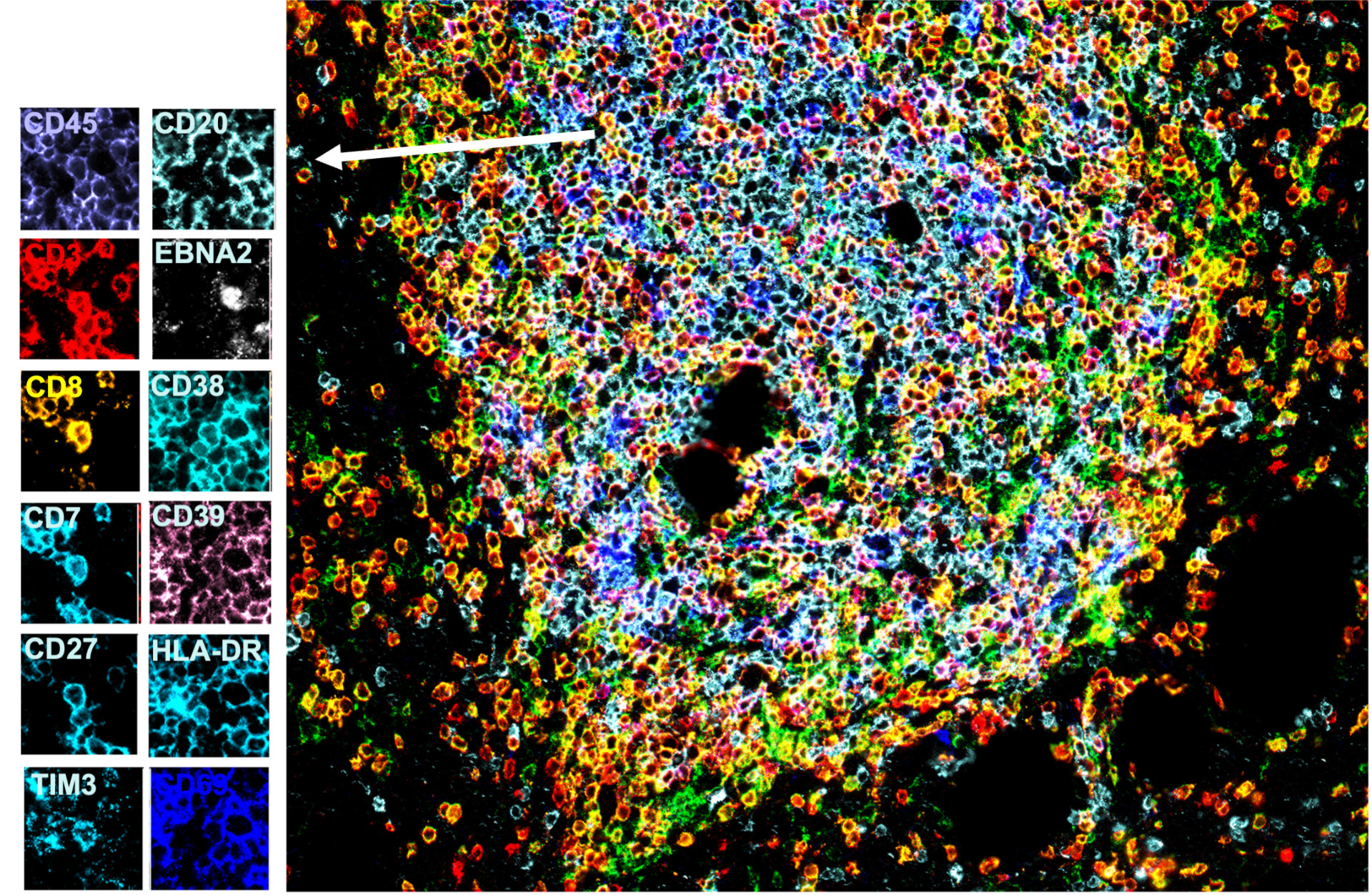Viral Immunobiology
The immune system of a species has developed throughout evolution in the face of infectious disease challenges that are specific to each individual species. We study the human immune system and believe that studying it without a pathogen is like studying a receptor without its ligand.
Therefore, we study the human gamma-Herpesviruses Epstein-Barr virus (EBV) and Kaposi sarcoma associated herpesvirus (KSHV). Both are some of the most successful pathogens in humans. EBV infects more than 90% of the human adult population, and KSHV more than 50% in Subsaharan African countries. Despite EBV’s strong growth transforming abilities for B and epithelial cells, most infected individuals control latent EBV infection life-long without tumor development. Only a minority of infected individuals develops EBV associated tumors like Hodgkin’s disease, nasopharyngeal carcinoma and Burkitt’s lymphoma, or EBV initiated autoimmune disease, such as multiple sclerosis (MS). During the long co-evolution of humans and EBV, the human immune system has learned to control EBV infection to keep the EBV carrier healthy. The virus has learned to persist after infection for the rest of the EBV carrier’s life with a finely tuned latent infection program. Therefore, the human tumorvirus EBV has probably shaped the human immune system and the immune response to EBV demonstrates essential components of human immune responses.
We study three aspects of mostly asymptomatic coexistence of EBV and KSHV with humans.
1. Co-infections with both tumor viruses that lead to the development of primary effusion lymphomas and allow KSHV to persist.
2. Molecular requirements for the near perfect EBV specific immune control by T cells and natural killer cells that prevent both tumorigenesis and autoimmunity.
3. Autophagy as anti- or pro-viral cellular mechanism during EBV and KSHV infection.
